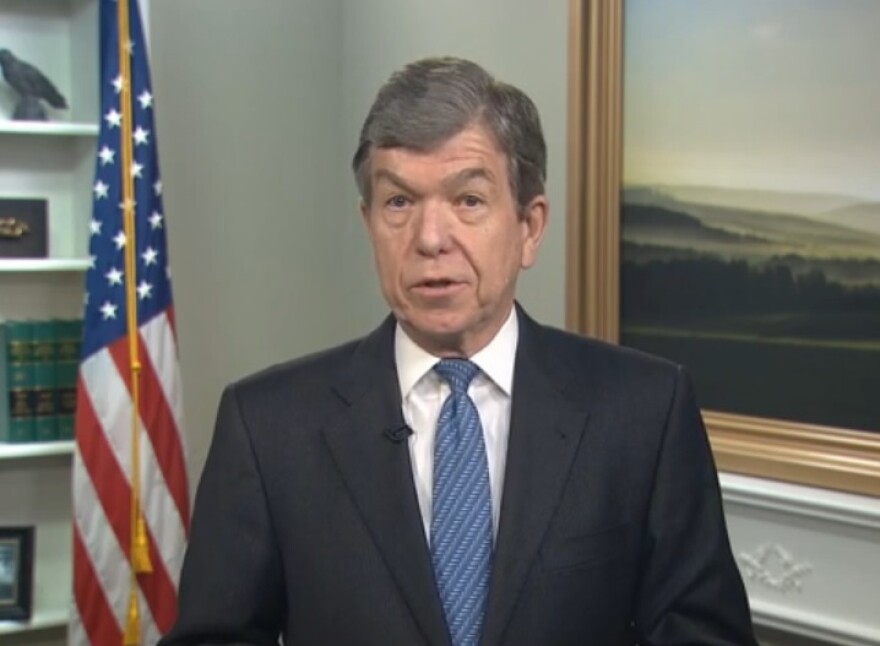Eager to assert their policy differences with the president once they have control of both gavels on Capitol Hill come Jan. 6, Republicans say they plan to advance legislation backing the construction of the Keystone XL pipeline, by TransCanada.
U.S. Sen. Roy Blunt, R-Mo., a member of the GOP leadership, says the president will likely have a pipeline bill "on his desk in the first three months” of the year.
The pipeline would carry Canadian crude oil from Alberta to oil-processing facilities on the U.S. gulf coast. Supporters, including U.S. Sen. Claire McCaskill, D-Mo., say the oil is coming out of the ground no matter what and will be transported in some manner.
“It’s going to be either moved by train, or it’s going to be moved by barge, or it’s going to be moved by pipeline. The safest way for it to be moved is by pipeline. It also has the benefit of more jobs,” said McCaskill when asked about her vote for a pipeline bill offered by Senate Democrats within weeks of losing their majority in last November’s mid-term elections.
Pipeline as political football
After years of blocking a vote on the pipeline out of deference to the White House, Senate Democrats relented late last year in a last-minute attempt to save the seat of U.S. Sen. Mary Landrieu, D-La., who at the time was facing a runoff election. Both the bill and Landrieu ultimately came up short in votes.
Immediately following the bill’s failure in the Senate, Blunt issued the following statement. “For more than six years, the Obama administration and Senate Democrats have played politics with American jobs and our nation’s energy security by blocking and delaying this common-sense, shovel ready project. The Keystone XL pipeline would create tens of thousands of jobs and decrease our nation’s heavy reliance on unstable foreign sources of oil – without costing taxpayers a dime.”

President Barack Obama largely questioned the value the pipeline would have on job creation, gas prices and the larger economy in his end-of-year news conference on Dec. 19,. Pump prices for gasoline and diesel are already at their lowest levels in years, raising questions by some industry analysts as to whether those lower oil prices, combined with decreased demand worldwide, will undermine the pipeline’s construction.
The president also said that the pipeline would create only a “couple thousand” temporary construction jobs, so more benefit could be had by rebuilding roads and bridges.
The White House has been able to delay a final decision on the pipeline arguing that because it crosses an international border a review of the project’s impact on the environment must go through the State Department. Last fall, Obama threatened to veto any legislation should it get to his desk, saying Congress should not circumvent the proper review process already underway. But in his most recent comments, the president stopped short of threatening to veto the project.
Pipeline may be difficult to stop
Environmental groups have been pushing Obama to block the pipeline. John Kurmann, lead coordinator with 350KC, the Kansas City branch of the 350.org international grassroots climate action movement, says the so-called Canadian tar sands are among the more carbon-intensive forms of fossil fuels and the “dirtiest source of oil on the planet.”
It is important to stop the pipeline, Kurmann said, because “there’s no guarantee that this stuff will actually get to market if the Keystone XL pipeline is not built.” While some oil is coming out of the ground now, that amount is nowhere near what the industry hopes to produce and transport should the Keystone XL pipeline be built. Kurmann said that rail would not be able to substitute for the pipeline because it simply lacks the capacity to transport as much oil as would a pipeline.
But with Republicans now in full control of Congress, Kurmann said Obama may find it difficult to stop the project.
“I think we can expect that Republicans will attach (the pipeline) to other legislation that the president needs, whether it’s a debt limit increase or something else that comes up,” he said.

U.S. Rep. John Shimkus, R-Collinsville, a member of the House Energy Committee, says that the the debate over the pipeline is not focused as much on its safety as much as the issues of global warming and greenhouse gases. Shimkus said that opponents want to stop the production of all fossil fuels, and blocking the pipeline is one way to do that.
But, Shimkus emphasizes, the pipeline is the safest way to transport the oil.
“Environmentalists act like this is the first pipeline we’ve ever built; it’s not,” he said.
Shimkus said the pipeline is a simple matter of energy security for the United States from a source that’s not as volatile as the Middle East: “It just helps add to the strength of our country by accessing another resource of crude oil from a neighbor and friend.”
To date, McCaskill is the lone area Democrat to back the pipeline’s construction. Others, including U.S Reps. Lacy Clay of University City and Emanuel Cleaver of Kansas City have sided with the White House as has U.S. Sen. Dick Durbin, D-Ill. All of the area’s Republicans in both the House and Senate say the pipeline should be built.


